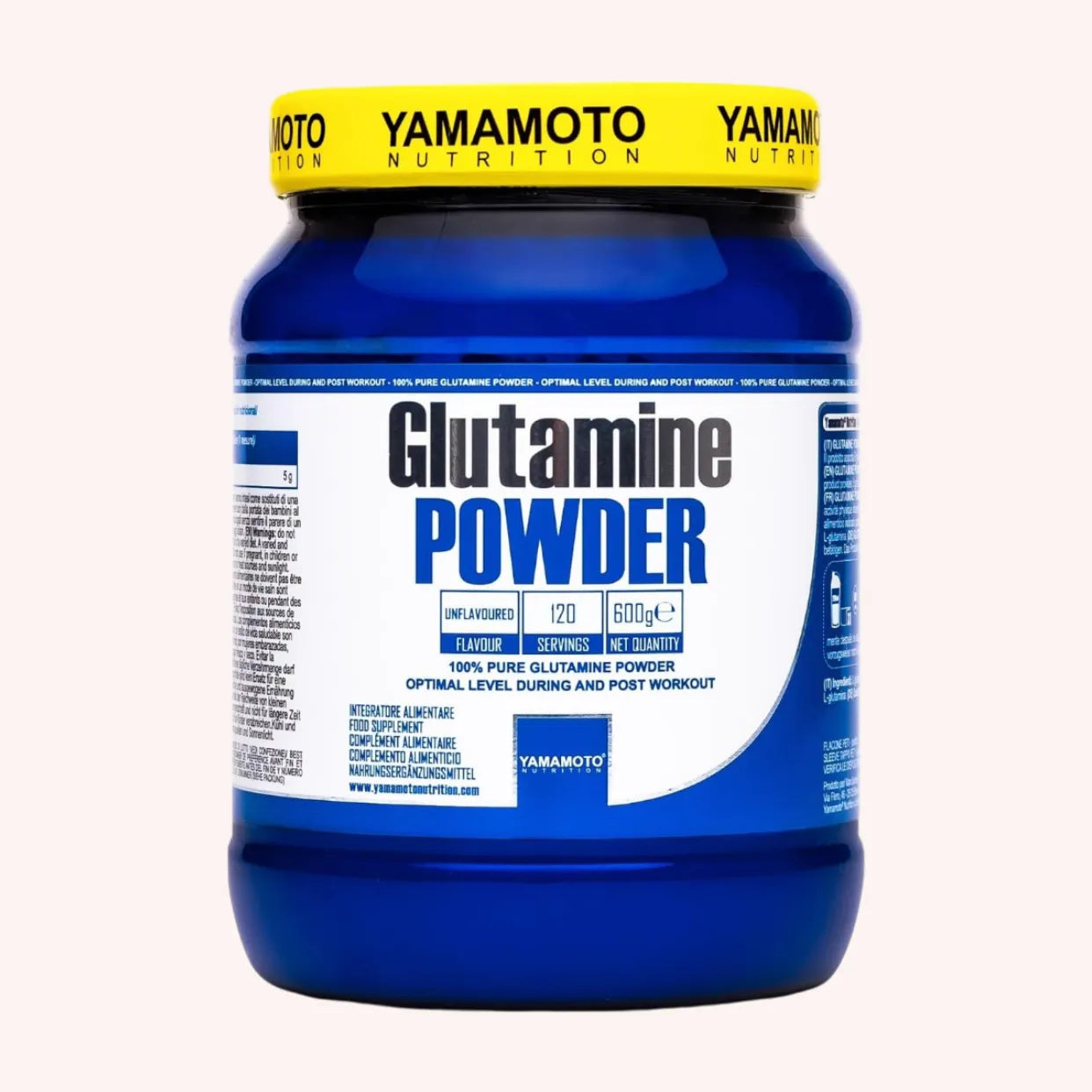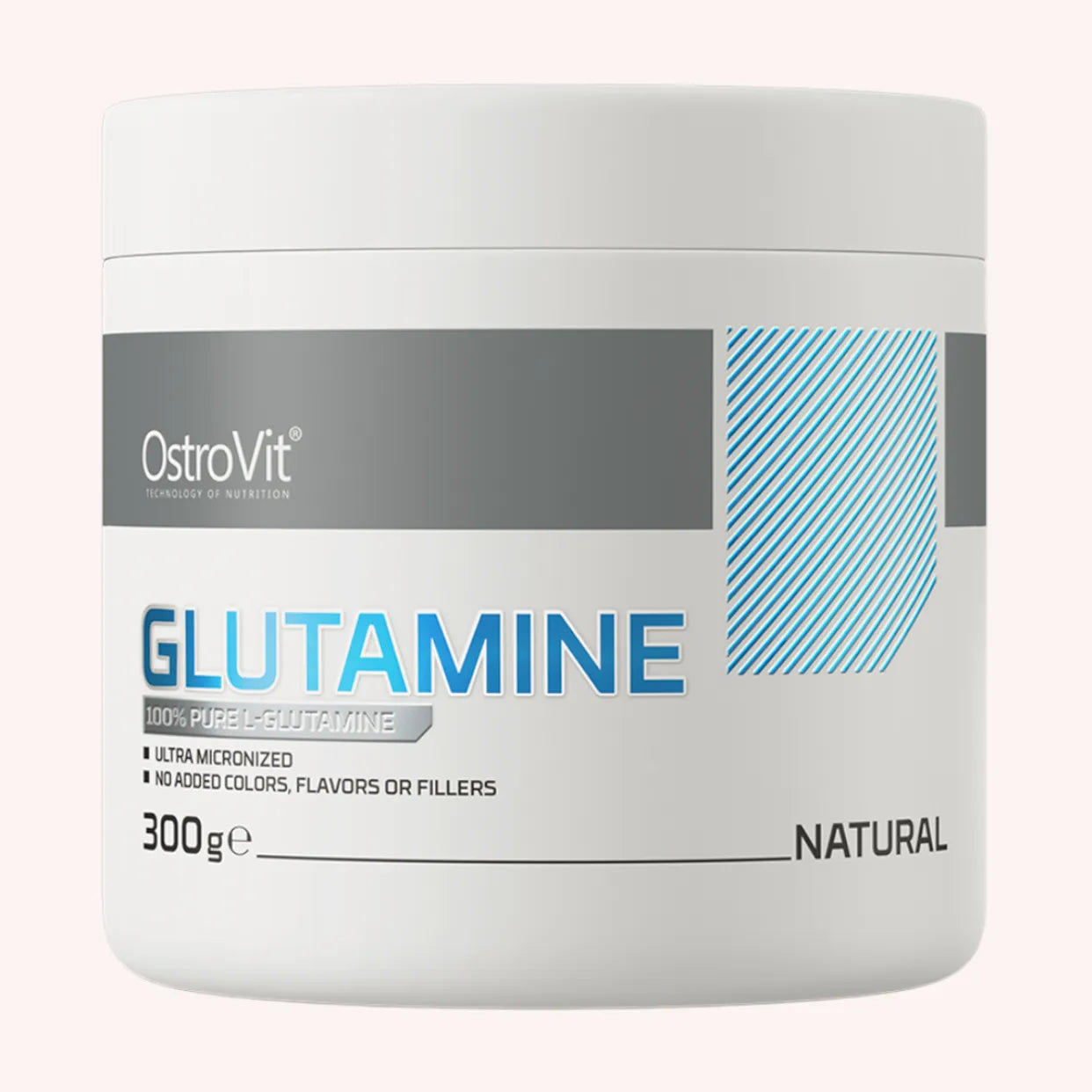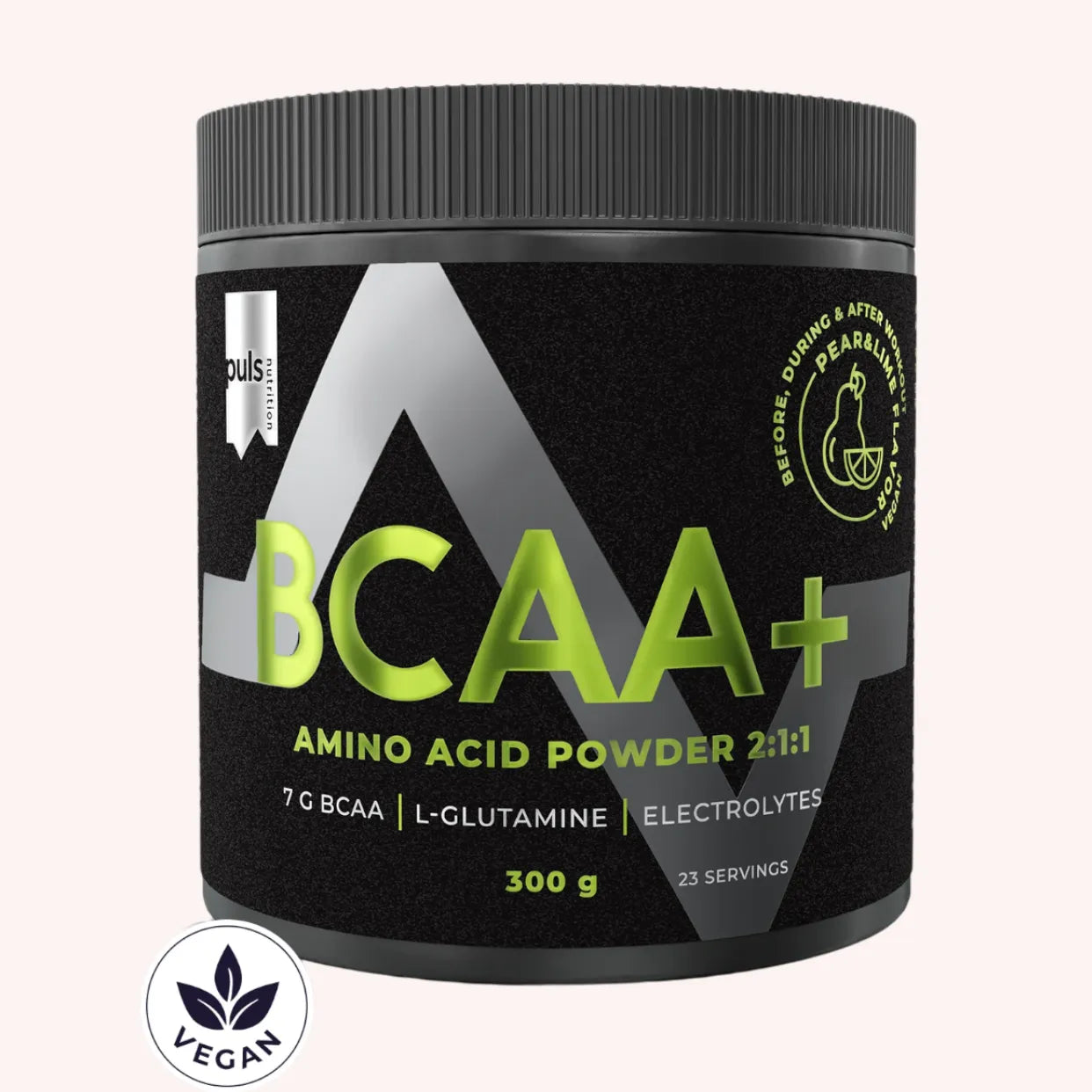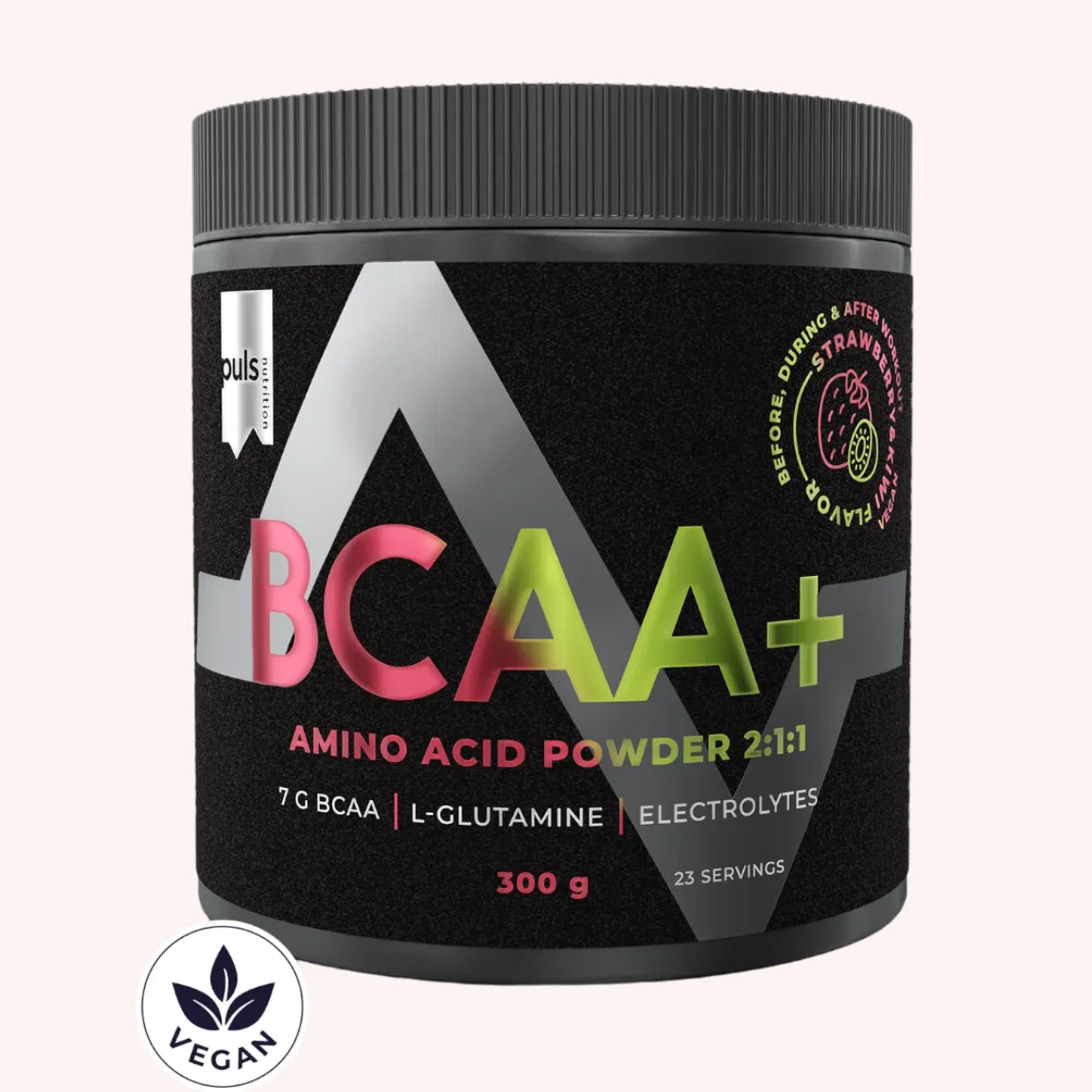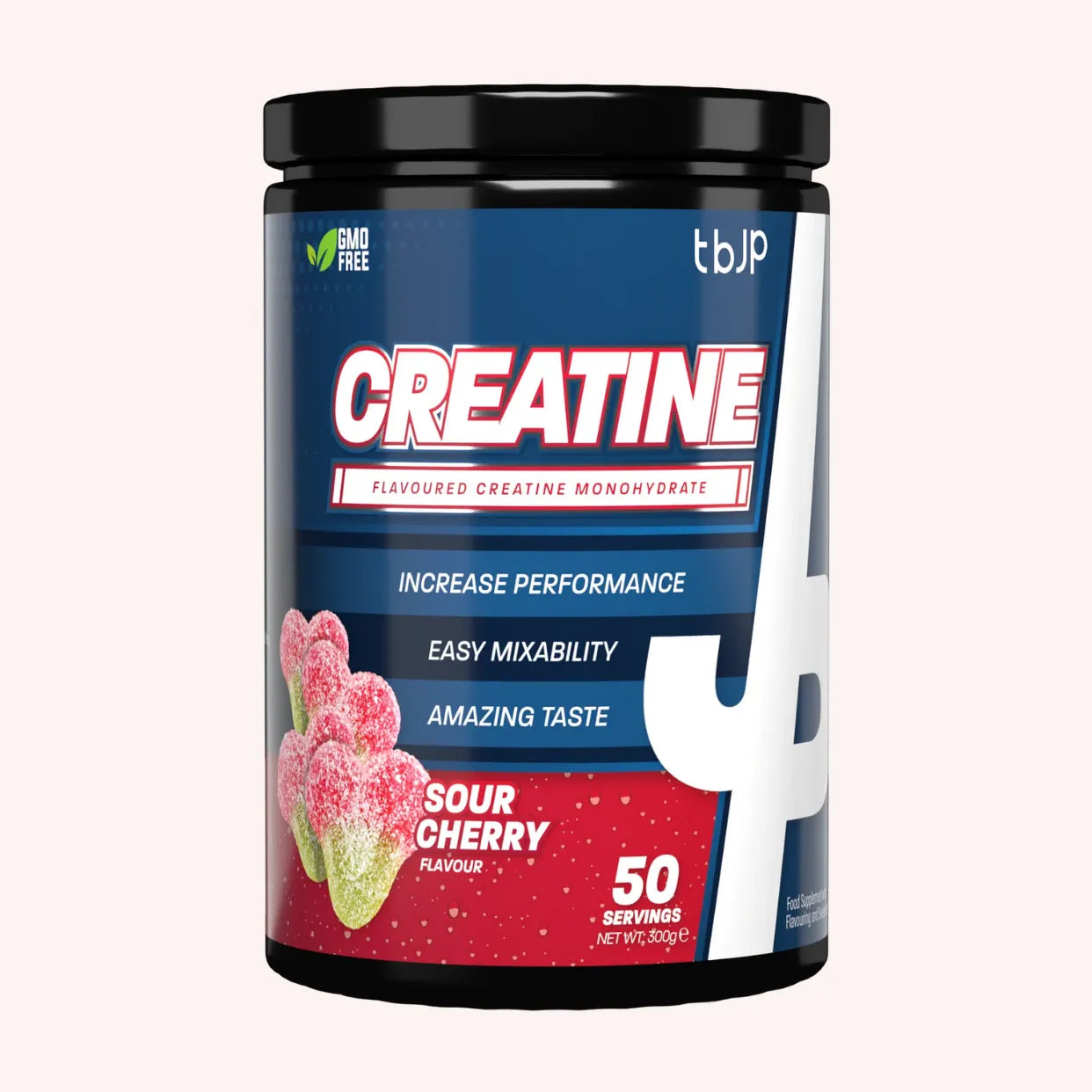Glutamine, the most abundant amino acid in the human body, is well-known in the sports nutrition community. Essential for muscle recovery , performance, and overall well-being, it has earned a prominent place in the world of dietary supplements. But what exactly are the benefits of this amino acid for athletes, and why is it recommended for intensive training?
In this article, we'll explore in detail the benefits of glutamine for athletes, its main dietary sources, and how to incorporate it into a nutritional routine to optimize your results.
What is glutamine?
Glutamine is a non-essential amino acid , meaning the body can produce it itself. However, it is classified as conditionally essential depending on the circumstances. Indeed, during intense physical exertion, the body may not be able to produce the amount of glutamine it needs, hence the importance of external intake. It is synthesized mainly in the muscles and is transported via the blood to various organs, including the intestines.
Glutamine plays a key role in several biological processes:
- Protein synthesis .
- Supporting the immune system .
- Regeneration of muscle tissue .
- Maintaining the integrity of the intestinal mucosa .
The main benefits of glutamine for athletes
Supports muscle recovery
During intense training, the body's glutamine stores can quickly become depleted. Without adequate replenishment, this can lead to increased fatigue and slower recovery. Taking glutamine supplements helps restore these levels and improve post-workout recovery. This allows for better repair of damaged muscle tissue, reducing muscle soreness and promoting a faster return to performance.
Additionally, by stimulating protein synthesis , glutamine promotes faster muscle growth , making this amino acid particularly popular with bodybuilders.
Immune system support
Glutamine is an essential energy source for immune cells, particularly lymphocytes and macrophages. These cells play a key role in defending the body against external aggressions. During prolonged or intense exercise, the immune system can be weakened, and glutamine levels decrease in the body.
Studies show that glutamine supplementation after exercise helps maintain optimal immune function and reduce the risk of infections, which are common among athletes during periods of overtraining.
Support for intestinal integrity
Athletes aren't just concerned with muscle performance: Digestive health also plays a key role. Glutamine is essential for the regeneration of intestinal mucosal cells. It helps maintain the integrity of the intestinal wall , thus limiting the risk of permeability, often referred to as "leaky gut." This allows for better nutrient absorption, which is essential for an athlete looking to maximize their results.
Regulation of acid-base balance
During sports, especially during intense exercise, the body produces lactic acid, which can disrupt the body's acid-base balance. Glutamine helps buffer this excess acid by allowing optimal regulation of blood pH. A good acid-base balance is essential to prevent muscle cramps and maintain high physical performance over the long term.
Promotes glycogen synthesis
After physical exertion , the body needs to restore its glycogen stores, the fuel for muscles. Glutamine helps speed up this process, allowing athletes to replenish their energy more quickly. This is especially useful for those who train multiple times a day or participate in competitions that require rapid recovery between events.
Food sources of glutamine
Although glutamine is produced by the body, it is possible to increase its intake through diet. This amino acid is found in protein-rich foods, such as:
- Meats and poultry: Chicken and beef are particularly rich in glutamine.
- Dairy products: Milk, yogurts, and cheeses contain significant amounts of glutamine.
- Fish: Fish is an excellent source of protein and glutamine.
- Vegetables: Raw spinach and parsley, as well as cabbage, are good plant sources.
- Legumes: Peas, beans, lentils, and soybeans also contain significant amounts.
However, for athletes and people who engage in intense physical activity , these dietary sources may not be enough to meet increased glutamine needs. This is where supplementation comes in.
Glutamine Supplementation: Why and How?
When to supplement?
Glutamine is primarily used around workouts to maximize its effects on muscle recovery and tissue regeneration. It is recommended to take between 5 and 10 grams of glutamine immediately after training and, if necessary, before bed to maximize nighttime recovery.
For long-term competitions or intensive training, it is sometimes suggested to add an extra dose of glutamine before exercise to prevent muscle breakdown.
How to take it?
Glutamine supplements come in various forms, but powder is the most common due to its ease of use. It can be added to a post-workout shake or protein drink. Capsules are also available for those who prefer a more discreet and convenient method of ingestion.
It is important to note that, although glutamine is considered safe, it is advisable to adhere to the recommended doses. Taking excessive doses does not lead to better results and may, on the contrary, cause mild side effects such as gastrointestinal disturbances.
Glutamine and other supplements: A winning duo?
Glutamine can be used alone or in combination with other sports supplements to maximize its effects. Here are some common combinations used by athletes:
- Glutamine and BCAAs: Branched-chain amino acids (BCAAs) are often combined with glutamine to maximize muscle recovery . While glutamine promotes tissue regeneration, BCAAs (leucine, isoleucine, and valine) stimulate protein synthesis , thus improving muscle mass gain .
- Glutamine and Creatine: Creatine is widely recognized for its effects on increasing muscle strength and power. Combined with glutamine, it helps promote both performance and recovery , especially in athletes engaged in resistance and high-intensity exercise.
Glutamine and sports goals
For bodybuilding
Glutamine is particularly popular among bodybuilders. It reduces muscle fiber breakdown and promotes recovery, allowing athletes to increase muscle mass while minimizing the risk of overtraining. Regularly supplementing with glutamine after weight training sessions helps maximize muscle gains and maintain an intense training pace without excessively tiring the muscles.
For endurance sports
Endurance sports, such as marathon running or long-distance cycling, require efficient management of energy reserves and rapid recovery. Glutamine plays an important role here by accelerating the restoration of muscle glycogen and supporting the immune system , which is particularly stressed after long exercise sessions.
For weight loss
Although less directly related to performance, glutamine can also be a valuable ally in weight loss. By maintaining muscle mass during periods of calorie restriction, it helps preserve muscle tone and definition, while supporting metabolism and body energy.
Glutamine and regulation of oxidative stress
Glutamine plays a central role in the regulation of oxidative stress, a process responsible for cellular damage caused by free radicals. Oxidative stress is the body's natural response to various stresses, such as intense exercise, infections, or chronic inflammation. However, excessive production of free radicals can damage cells, accelerate aging, and promote the development of chronic diseases.
Glutamine is involved in the synthesis of glutathione, a key antioxidant that protects cells from oxidative damage. Glutathione is essential for neutralizing free radicals and maintaining a healthy balance in the body. Studies have shown that glutamine supplementation can support glutathione production, particularly in situations of metabolic or physical stress, helping to strengthen the body's ability to defend itself against cellular damage.
Impact of glutamine on recovery after intense exercise
During intense exercise sessions, glutamine levels in the body decrease, which can lead to a decline in the body's ability to manage oxidative stress and recover effectively. This is where glutamine supplementation comes in, helping not only restore glutamine levels but also stimulate glutathione production. This helps reduce muscle soreness and improve post-workout recovery.
Additionally, in individuals under prolonged stress conditions, such as chronic inflammatory diseases or physical trauma (such as severe burns), glutamine may have a beneficial effect on reducing oxidative stress, thereby promoting faster and more efficient healing.
Glutamine stands out for its versatility and numerous benefits for athletes. Whether you're a bodybuilding enthusiast or a fan of endurance sports, this essential amino acid can help you maximize your performance, improve your recovery, and support your immune system . However, as with any supplement, it's essential to incorporate it wisely into your nutritional routine. Make sure you're following the recommended dosages, and if in doubt, don't hesitate to consult a healthcare professional or nutritionist to customize your supplementation based on your specific goals and needs.
Sources:
- Glutamine Metabolism in Cancer Stem Cells: A Complex Liaison in the Tumor Microenvironment Pacifico F, Leonardi A, Crescenzi E. Int J Mol Sci. 2023 Jan 25;24(3):2337. DOI: 10.3390/ijms24032337 PMID: 36768660 : https://www.mdpi.com/1422-0067/24/3/2337
- Cruzat V, Macedo Rogero M, Keane KN, Curi R, Newsholme P. Glutamine: Metabolism and Immune Function, Supplementation and Clinical Translation . Nutrients . 2018 Oct 23;10(11):1564. doi:10.3390/nu10111564. PMID: 30360490 .: https://pubmed.ncbi.nlm.nih.gov/30360490/
- Coqueiro AY, Rogero MM, Tirapegui J. Glutamine as an Anti-Fatigue Amino Acid in Sports Nutrition . Nutrients . 2019 Apr 17;11(4):863. doi:10.3390/nu11040863. PMID: 30999561 .: https://pubmed.ncbi.nlm.nih.gov/30999561/
- Holecek M. Side Effects of Long-Term Glutamine Supplementation . JPEN J Parenter Enteral Nutr . 2013 Sep;37(5):607-16. doi:10.1177/0148607112460682. PMID: 22990615 .: https://pubmed.ncbi.nlm.nih.gov/22990615/
- Heyland DK, Wibbenmeyer L, Pollack J, et al. A Randomized Trial of Enteral Glutamine for Treatment of Burn Injuries . N Engl J Med . 2022 Sep 15;387(11):1001-1010. doi: 10.1056/NEJMoa2203364. PMID: 36082909 .: https://pubmed.ncbi.nlm.nih.gov/36082909/
- Gleeson M. Dosing and Efficacy of Glutamine Supplementation in Human Exercise and Sport Training . J Nutr . 2008 Oct;138(10):2045S-2049S. doi: 10.1093/jn/138.10.2045S. PMID: 18806122 .: https://pubmed.ncbi.nlm.nih.gov/18806122/
- Xiao Y, Hu B, Guo Y, et al. Targeting Glutamine Metabolism as an Attractive Therapeutic Strategy for Acute Myeloid Leukemia . Curr Treat Options Oncol . 2023 Aug;24(8):1021-1035. doi:10.1007/s11864-023-01104-0. PMID: 37249801 .: https://pubmed.ncbi.nlm.nih.gov/37249801/
- Ramezani Ahmadi A, Rayyani E, Bahreini M, Mansoori A. The Effect of Glutamine Supplementation on Athletic Performance, Body Composition, and Immune Function: A Systematic Review and Meta-Analysis of Clinical Trials . Clin Nutr . 2019 Jun;38(3):1076-1091. doi: 10.1016/j.clnu.2018.05.001. PMID: 29784526 .: https://pubmed.ncbi.nlm.nih.gov/29784526/
- Hall JC, Heel K, McCauley R. Glutamine . Br J Surg . 1996 Mar;83(3):305-12. doi:10.1002/bjs.1800830306. PMID: 8665180 .: https://pubmed.ncbi.nlm.nih.gov/8665180/
- Labow BI, Souba WW. Glutamine . World J Surg . 2000 Dec;24(12):1503-13. doi:10.1007/s002680010269. PMID: 11193715 .: https://pubmed.ncbi.nlm.nih.gov/11193715/





